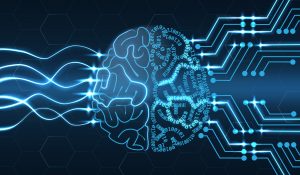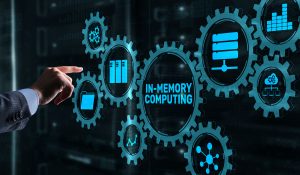
by Sergey Blagodurov, Mike Ignatowski, Valentina Salapura on Sep 22, 2021 | Tags: Accelerators, Coherence, Datacenters, Interconnects, Memory, Networking, Systems
Despite being hidden from the end user, datacenters are ubiquitous in today’s life. Massive datacenter installations are the driving force behind social networking, search, streaming services, e-commerce, cloud, and the gig economy. Today’s datacenters are as...
Read more...

by Simla Burcu Harma, Mario Drumond, Babak Falsafi on Sep 20, 2021 | Tags: Accelerators, Machine Learning, Numerical Format, Tools
DNN training is emerging as a popular compute-intensive workload. This blog post provides an overview of the recent research on numerical encoding formats for DNN training, and presents the Hybrid Block Floating-Point (HBFP) format which reduces silicon provisioning...
Read more...

by Gururaj Saileshwar on Sep 15, 2021 | Tags: Cache, Computer Architecture, Randomization, Security
There is a battle ongoing in the realm of secure caches. Cache side-channels are a serious security problem as they allow an attacker to monitor a victim program’s execution and leak sensitive data like encryption keys, confidential IP, etc. A potent class of such...
Read more...

by Minsoo Rhu on Sep 9, 2021 | Tags: Datacenters, Emerging Technology, Interconnects, Memory, Memory Disaggregation, Processing-in-Memory
The Memory (Bandwidth and Capacity) Wall The “memory wall” problem, originally coined by Wulf and McKee in the 1990s, pointed out that the rate of improvement in microprocessor performance far exceeds the rate of improvement in DRAM memory speed. Such trend rendered...
Read more...

by Jonathan Baker and Fred Chong on Aug 31, 2021 | Tags: Quantum Computing
Despite quantum computing (QC) being an emerging technology, it is critical to consider new emerging technologies for this paradigm. Current machines, constructed from superconducting transmons or trapped ions, have demonstrated impressive success recently but it is...
Read more...

by Srilantha (Bobbie) Manne, Carole-Jean Wu, Parthasarathy (Partha) Ranganathan, Sarah Bird, Shane Greenstein on Aug 18, 2021 | Tags: Datacenters, Edge Devices, Emerging Technology, Environment, Inclusion, Societal Impact, Sustainability
Digital technologies have had an undeniable influence on humanity’s well-being, transforming all aspects of our lives. Underpinned by advances in process technology, computer architecture, software engineering, and artificial intelligence (AI), the rapid technological...
Read more...

by Tim Rogers and Mahmoud Khairy on Aug 10, 2021 | Tags: Accelerators, Benchmarks, Machine Learning, Systems
At its core, all engineering is science optimized (or perverted) by economics. As academics in computer science and engineering, we have a symbiotic relationship with industry. Still, it is often necessary for us to peel back the marketing noise and understand...
Read more...
by Lisa Hsu on Aug 5, 2021 | As architects, we have heard the drumbeat about the impending end of Moore’s Law for at least a few decades, and in more recent years, the end of Dennard scaling. It is this latter phenomenon that has been extremely impactful to the power consumption of the...
Read more...

by Christos Kozyrakis and Emery Berger on Jul 30, 2021 | Tags: ASPLOS, Conferences, extended abstract, program committees, Review, Reviewing
Background When we started planning the ASPLOS’21 program committee in Spring 2020, we asked ourselves what we could do to make the review process better for everyone. In our opinion, the most impactful improvement would be to increase the signal available for each...
Read more...

by Jayashree Mohan and Vijay Chidambaram on Jul 14, 2021 | Tags: Machine Learning, Storage
Machine Learning (ML), specifically Deep Neural Networks (DNNs), is stressing storage systems in new ways, moving the training bottleneck to the data ingestion phase, rather than the actual learning phase. Training these models is data-hungry, resource-intensive, and...
Read more...











